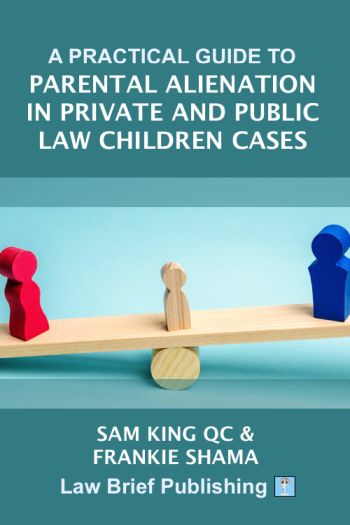
The definition of parental alienation has been subject to consistent debate: it is broadly summarised as a child’s resistance or hostility towards one parent, which is unjustified and the result of psychological manipulation by the other parent. It is a concept that private children practitioners over recent years have been grappling with increasingly frequently in practice.
This book provides the reader with a history of the emergency of parental alienation as a concept (sometimes called intractable hostility). It charters some of the debate around its definition and scale within the Family Court. It considers the court’s general approach to making child arrangements orders in cases where a child rejects or resists spending time with one parent post-separation. It also looks at parental alienation in conjunction with allegations of domestic abuse and coercive and controlling behaviour, and the court’s application of Practice Direction 12J. In considering the intersection between these two issues, it provides an insight into some of the challenges the Family Court faces in assessing a child’s rejection of resistance to spending time with the other parent in circumstances where it is unclear if there is a legitimate reason or cause.
Crucially, this provides a unique toolkit for practitioners based on judicial commentary from recent judgments as to how to practically manage cases featuring parental alienation. It looks at the options available to the court to promote contact and manage a relationship between an alienated child and parent, including but not limited to enforcement options; therapeutic options; section 37 reports and public law intervention; the separate representation of children, and transfers of residence.